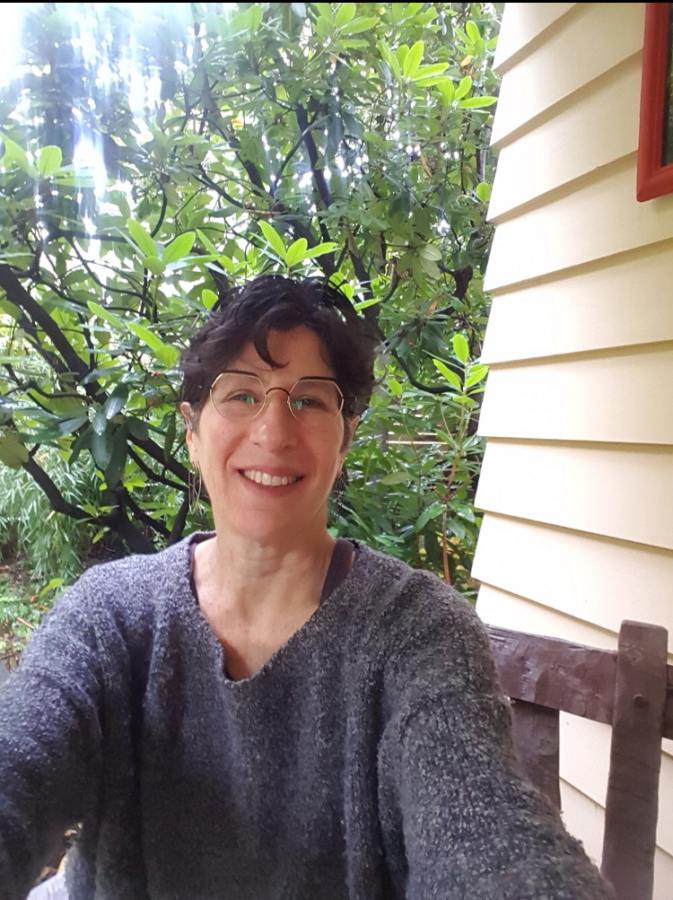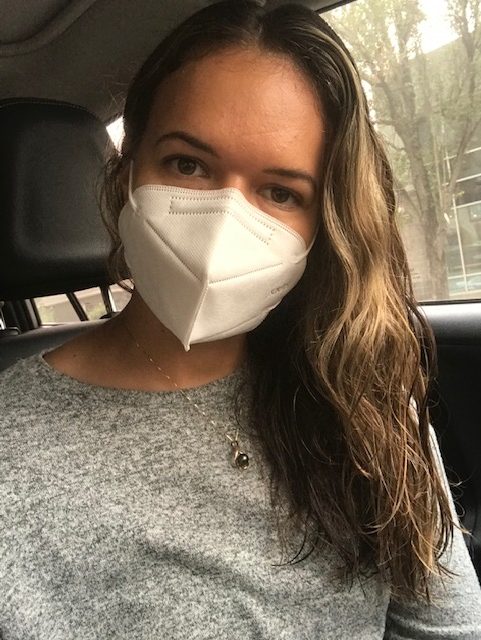New school social workers’ impact immediately felt
Judy Herzberg is one of two new social workers at Lincoln. Because of increased anxiety and depression rates due to the COVID-19 pandemic, social workers are more beneficial than ever.
January 9, 2021
Symptoms of anxiety disorder and depressive disorder increased considerably in the United States during April through June of 2020, compared with the same period in 2019, according to a study done by the Centers for Disease Control and Prevention (CDC). This same study reports that one in four young adults– ages 18 to 24– have struggled with suicidal thoughts since the coronavirus hit.
Fortunately, the Portland Public Schools (PPS) district was able to begin hiring school social workers, who help directly with these issues, just days before the pandemic began.
School social workers “work directly with school administrations as well as students and families, providing leadership in forming school discipline policies, mental health intervention, crisis management, and support services,” according to the National Association of Social Workers.
“What I love about school social work is that it really creates less barriers for kids to access [mental health resources]… We can provide that frontline response– free of cost– that can help link kids up with more help for the future,” said Kate Allen, Social Worker on Special Assignment for PPS. “I also think it’s very rare that you have access to somebody in your school building that’s 100% confidential– except for mandatory reporting requirements– and that really knows your day-to-day school world.”
Allen trains and orients social workers in the PPS district to help them problem solve and find mental health resources for their students. Her position, as well as the 45 social worker positions around the district that were created and filled this year, would not exist without the passage of the Student Success Act (SSA).
The SSA was signed into law by Oregon Governor Kate Brown on May 20, 2019. At the heart of the SSA is a “commitment to improving access [to mental health support, among other things,]… for students who have been historically underserved in the education system,” according to the Oregon Department of Education. When fully implemented, the SSA is expected to invest $2 billion into Oregon education every two years.
“How schools use this permanent funding differs from school district to school district, but for the first time in Oregon, we’re really seeing social workers being hired,” Allen said.
Because of the SSA, Lincoln was given a full-time social worker position. The school was able to hire two part-time social workers: Giovanna Bocanegra and Judy Herzberg.
“[Lincoln should feel] so fortunate to have Bocanegra and Herzberg,” Allen said. “These two social workers are actually two of our most highly qualified of the whole team. Both of them are really highly trained mental health therapists.”
Bocanegra previously worked as a social worker at elementary and middle schools in Denver, Colo. and and Minneapolis, Minn., but was hired this year to work 20 hours a week at Lincoln.
Herzberg has been part of the Lincoln community for a while. She did her social work internship at Lincoln in 2010, and a few years later was hired to work at the school for one day each week. She held this position for the past five years until getting hired part-time– 20 hours a week– this year.
“Lincoln has always had a fond place in my heart,” Herzberg said. “I’m lucky that I got to stay.”
Bocanegra and Herzberg work to support students so they can be successful in both school and life.
“We help connect students with what they need,” Bocanegra said. “For example, if a student finds out that she’s pregnant, we can work with them and connect them [with the resources they need]. If a student is houseless, or if they don’t have an adequate place to live, then we can connect them to housing support. If there’s a student of color and they are looking for a specific service like a therapist of color, then we do our best to find that for them.”
Unfortunately, the pandemic has made it difficult to feel connected with students.
“A lot of what we do stems from having a relationship with a family or a student or a teacher,” Bocanegra said. “With distance learning, it’s a little bit harder to form these relationships, especially being new to school. We are trying to overcome that, but it’s harder to make real connections when you have to be on a screen and talk about such personal issues.”
Despite this, Bocanegra and Herzberg are working hard to provide students with adequate support. They are currently running a small expressive arts social group on Wednesdays from 1 to 2 p.m., which is designed to build community and connection through art.
They also have daily social hours set up on Mondays through Thursdays during lunch. Monday discussions are centered around substance use, Tuesdays are used to talk about being a senior during the pandemic, Wednesdays are for ninth grade girls and Thursdays are for any and all new Lincoln students. If you would like to attend one of these discussions, you can join using this link.
The pandemic has created countless issues and difficulties, but Lincoln’s social workers are here to provide help and support.
“The best thing students can do right now is to look out for one another,” Allen said. “If [you] are worried about one of [your] friends, or if [you] need support, do not be afraid to reach out to Bocanegra and Herzberg to get the help [you] need.”
If you are interested in connecting with Lincoln’s social workers, or learning more about their current projects, check out the LHS Social Work Department website.




